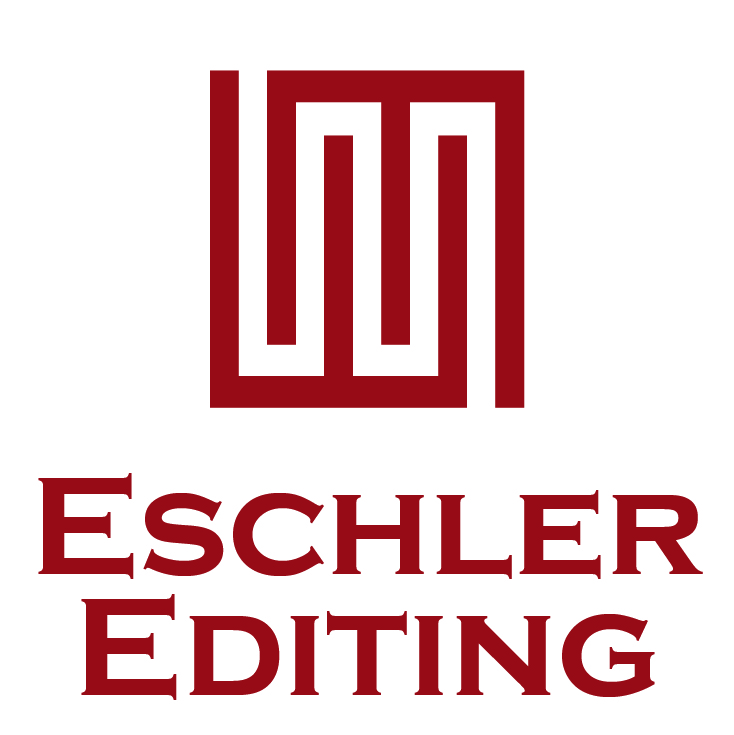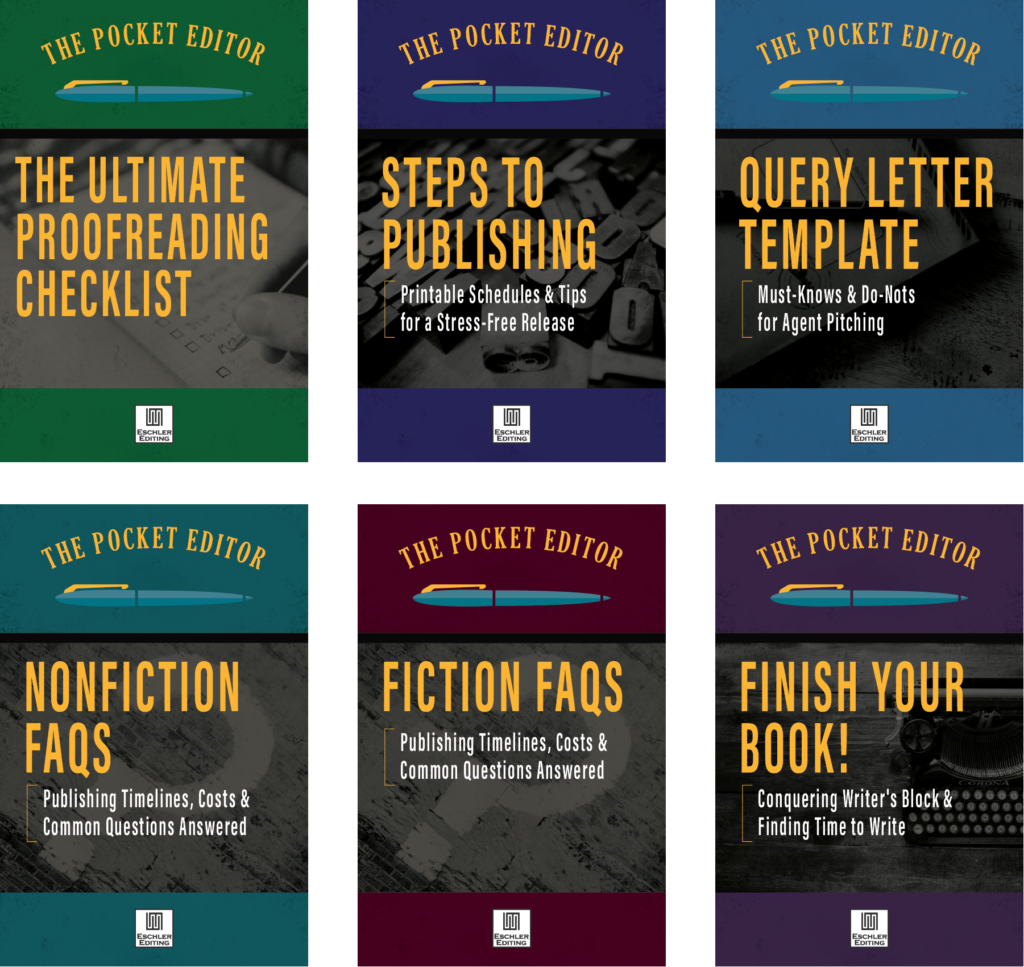Leave Your Cave:
Amazing Breakthrough Resources You Should Know About
Editor’s Nightstand Intro
By Catherine Langford
In Plato’s Republic—
Yes, we’re getting a little literary here, but what kind of editor doesn’t occasionally call upon the “the cannon” (dun-dun-dun-duh) in order to sound smart? C’mon, let us pontificate for a minute. So, in his Republic, Plato tells the allegory of the cave in which a group of people are held immobile in a cave where a fire is behind them and casts shadows from the outside world. The cave people believe the shadows are the reality; but one day one of them is released and leaves the cave, where he sees the source of the shadows and realizes the world is made up of colors and light. He then returns to share his newfound knowledge with his fellow cave dwellers.
This allegory was intended to show the philosopher’s place in the world: to leave the cave, see reality, and communicate it to others. Similarly, an editor’s place is to illuminate writers.
As the title of this post promises, our Editor’s Nightstand posts will be about cluing you in to the best breakthrough resources we know of. What does that mean? It means these are books we read—as editors with years of experience in reading and publishing—and said “Whoa … that is brilliant.” When we have recommended them to budding writers, we’ve consequently watched their books go from blah to bling. Salivating?
Why Nightstand?
Among the five editors (and dozens of surveyees) who contribute to this series, there are a LOT of great books sitting on nightstands (and e-readers) out there. We want to offer you an overview of some of the resources that make up part of an editor’s arsenal and that successfully guide hundreds of writers to greater heights—both in craft advancement and book sales.
How do your favorite authors do it? What magic do they spin to create such amazing stories? This series gives you insight into their processes, so that instead of trying to interpret shadows on a wall, you will see the colors and light that make up a good book’s reality.
So, here’s a taste. While the second article will simply list dozens of books specific to genre, category, and topic, the following titles get a bit more of a spotlight since we consider them vital reading for narrative writers (fiction, memoir, etc.). These are useful books for any genre fitting into that category and cover the must-haves of any commercially successful story. (And there will be plenty of titles for nonfiction in the next article.)
The Books
One of the top areas you need to understand first is good beginnings, because they’re often the makers and breakers of your potential literary career—right out of the gate. For many readers, how quickly you draw them into the story is critical to their purchasing your book (or for reading further if they gambled on your first book, say, for Amazon-pricing reasons).
The opening pages are even more important if you’re trying to get an agent or traditional publisher. Ask any editor who’s worked in house at a publisher, and we’ll tell you that an editor could get lost forever under the mountain of submissions. After a few months of trying to give every book the benefit of the doubt, if editors want to see their families, sleep, brush their teeth, etc., they have to shift their paradigm from author-friendly to sanity-friendly.
That means both editors and agents are looking for reasons to reject a manuscript as quickly as possible. So if the opening doesn’t stop their breath, or if the telltale red flags of amateur prose cry out to them, the form-rejection goes out and they move on.
Hooked
Our first book spotlight is Hooked: Write Fiction That Grabs Readers at Page One and Never Lets Them Go by Les Edgerton (writer and editor). From his book, you’ll discover how much there is to learn about a heart-stopping opening—how many well-considered “beginnings” you’re going to lay down: “The opening line, the opening paragraph, the opening scene, the opening page, and the opening chapter itself” (p. 7).
All of these beginnings combine to accomplish four critical goals: “(1) To successfully introduce the story-worthy problem; (2) to hook the readers; (3) to establish the rules of the story; and (4) to forecast the ending of the story” (p. 36). Oooohh … foreshadowing …
What is the “story-worthy” problem and why are you sunk without one? (It’s not the plot, if that’s what you’re thinking.) Do raging fans and fainting agents mean anything to you? If you want to turn away the paparazzi, you’ll want to get your hands on Edgerton’s 10-part secret to that knockout beginning.
The First Five Pages
Once you understand how to construct a great story beginning, you’ll want to get a handle on how to execute those awesome story ideas through prose. Stepping into the light comes The First Five Pages: A Writer’s Guide To Staying Out of the Rejection Pileby Noah Lukeman (literary agent).
As Lukeman writes: “Most people are against books on writing on principle. So am I. It’s ridiculous to set down rules when it comes to art. Most of the truly great artists have broken all the rules, and this is precisely what has made them great.” However, as he also points out, while “there are no rules to assure great writing … there are ways to avoid bad writing” (p. 1).
While good writing tends to be unique, bad writing tends to come in the form of the exact same problems across the globe. Correcting this problem for you, dear reader, is the goal of his book. Nineteen key principles of poor execution—and how to avoid it—fill this neat little tome. As editors we all agree with Lukeman’s observation that while “the art of writing cannot be taught … the craft of writing can. … There is no such thing as a great writer; there are only great re-writers” (p. 15).
Scene and Structure
Once you’ve nailed your beginning and have a handle on understanding decent prose, you’ll have to convince the now-intrigued reader that you can deliver on the promises you’ve made and keep them turning pages. Thus, to help with plot, enter Elements of Fiction Writing—Scene and Structure by Jack M. Bickham.
Bickham reminds the writer that, psychologically, readers turn pages because:
- They are fascinated and threatened by significant changes;
- They want the story to start with such a change;
- They want to have a story question to worry about;
- They want the story question answered in the story ending;
- They will quickly lose patience with everything but material that relates to the story question (p. 7).
And he provides clear, step-by-step direction for how to construct a scene and chapter in order to keep readers where they want to be.
Sign up below for our newsletter, and you’ll be the first to get the rest of the list from our Editors’ Nightstands.
Here’s your chance to chime in. Want to throw another title into the ring and defend it as awesome enough for other writers to pick up? Tell us your favorite meta-writing books—or other resources—for breakthrough insights on narrative writing skills. Leave those comments below!
Please note that we have an affiliate association with Amazon, and some of the links on our site may be affiliate links. As an Amazon Associate, we earn a small commission if you buy from affiliate links.





I’ve read Scene and Structure (it’s actually right here next to my bed). Excellent resource. I’ve heard of The First Five Pages and want to read it. I’d never heard of the one by Les Edgerton. I wish both of these title were less costly on the Kindle. Maybe I’ll see if my library has them.
Thanks for this post!
Yes, sometimes Kindle prices are high on the less popular titles, but I love libraries! And that way you can see whether you want to invest in the book after all to refer back to, or if you just want to read it once for quick inspiration. Some libraries even lend titles through Kindle or other e-reader (mine uses an Overdrive app). Happy reading! (from Catherine Langford)
I love Les Edgerton’s book! I refer to it almost as often as Bickham’s. It’s worth the money.
I really liked The First Five Pages. Hooked is on my to read list next. I’ve heard great things about it. I’m finishing How to Write Science Fiction and Fantasy right now. Not a first pages book, but one of my favorites on writing. Excited for this series, I love to know what people are reading!
I totally understand the need to hook the reader in the first page of a manuscript. I normally read the back cover blurb of a book I’m thinking about buying, to see if I like it, and then I always read the first page before I make that purchase–always! If it doesn’t hold my interest, or if its poorly written (and you can tell by the end of that first page), then I won’t spend the money, or even download a free copy onto my Kindle. In the past, I’ve made exceptions and read past that important first page, hoping the story got better, but all I got was aggravation and wasted time.
Can’t wait for the next edition of Editor’s Nightstand. POV is a fun subject.
Me too, Debra! I’m excited for this series, as it allows me to share some of our favorite resources, but also because I get to explore new things. POV is huge in writing, so I hope to offer some good resources to check out. (from Catherine Langford)
These are three terrific resources. I’ve used them all in the past, and recently reread Jack Bickham’s. I was struck by how many manuscript problems I come across that could be greatly improved by applying some of the ideas in Scene and Structure, as well as Hooked and the First Five Pages. Self-Editing for Fiction Writer’s by Renni Browne and Dave King is another go-to writing resource on my shelf. I’m looking forward to the next article in the series.